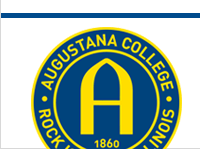Course
BIOL464-01: How Does Cancer Hijack Normal Cells?
Document Type
Student Paper
Publication Date
Winter 2-12-2016
Disciplines
Biology | Medical Cell Biology | Medical Immunology | Therapeutics
Description, Abstract, or Artist's Statement
Background and significance: The rebirth of the theory of immunosurveillance in 2001 rejuvenated interest in anticancer immunotherapies. In particular, T-cell-based therapies have garnered substantial interest due to the robustness and tumor antigen-specific cytotoxicity of T-cell anticancer immune responses.
Hypothesis: The efficacy of adoptive cell transfer (ACT) T-cell immunotherapy could significantly improve and gain widespread approval if future innovations in ACT-based approaches account for the pro- and antitumoral properties of non-CD8+ lineages of effector T-cells, evasion of T-cell antitumor immunity, and tumor-induced suppression of antitumor immunity.
Problem Analysis: Despite numerous reports of highly successful ACT-based clinical trials, no such therapy is currently approved by the FDA for use in cancer patients. This project explores three limitations of current ACT-based anticancer therapies that may underline their lack of federal approval: inadequate incorporation of the pro- and antitumoral properties of non-CD8+ T-cell lineages as potential immunotherapeutic targets; tumor evasion of T-cell antitumor immunity; and tumor-induced immunosuppression of T-cells.
Broader implications: Substantial patient-incurred economic costs are likely to be associated with ACT-based anticancer therapies if they are approved for clinical use. However, the relatively few side effects associated with anticancer ACT render this approach significantly less abusive than traditional forms of anticancer treatment.
Augustana Digital Commons Citation
Volk, Aaron. "Challenges of Adoptive (T-)cell Transfer Immunotherapy for Cancer" (2016). Biology: Student Scholarship & Creative Works.
https://digitalcommons.augustana.edu/biolstudent/2
Included in
Biology Commons, Medical Cell Biology Commons, Medical Immunology Commons, Therapeutics Commons
